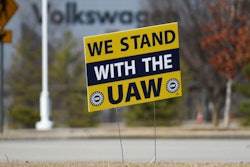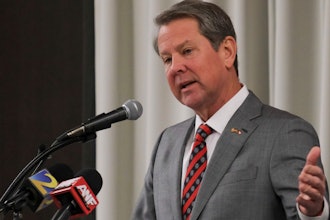WICHITA, Kan. (AP) -- Cessna Aircraft Co., the city's largest employer, said Tuesday that it's planning a second round of layoffs as the slowing economy affects orders for new planes.
A company spokesman couldn't say how many jobs could be lost, saying that officials were considering how much to shrink their production plans for 2009.
"We're going through the assessment right now," Cessna spokesman Bob Stangarone said. "It has not been determined yet."
Cessna last month issued a 60-day layoff notice to about 500 Wichita employees and an additional 165 people in Bend, Ore. The company employs about 12,000 in Wichita.
The city's aviation industry has been hit hard by the failing economy.
Boeing co. said in November it was laying off a quarter of its work force at the Wichita plant, about 800 people, as current projects are completed.
That same month, Hawker Beechcraft announced it was cutting 490 jobs, or 5 percent of its work force.
In a memo to Cessna employees Tuesday, Chief Executive Jack Pelton said the economy was leading customers to cancel or defer orders for new planes.
"As the global economic crisis has continued to deepen, we have to further reduce the 2009 production schedule, and this will regrettably result in additional work force reductions," Pelton wrote.
"As soon as we finalize our revised 2009 production plan, we will communicate what the implications are for our company."
Pelton noted that while Cessna delivered a record number of aircraft in 2008 and had begun the year planning for growth this year and the next, orders for Citation jets had dropped by the third quarter, cutting into those growth plans.
For example, NetJets, a major Cessna customer that allows people to share in the ownership of business jets, put off buying "a significant number" of planes scheduled for delivery this year, Pelton wrote.
"The first half was full of promise for the future," he wrote. "The second half of the year ended by not only putting on the brakes, but also backing up a bit."
He also pointed to other signs of a slowing economy, such as less daily use of private jets and a spike in used aircraft on the market.
"The domestic market remains very soft," Pelton wrote, "and the international markets that were very strong a year ago are now quiet."






















